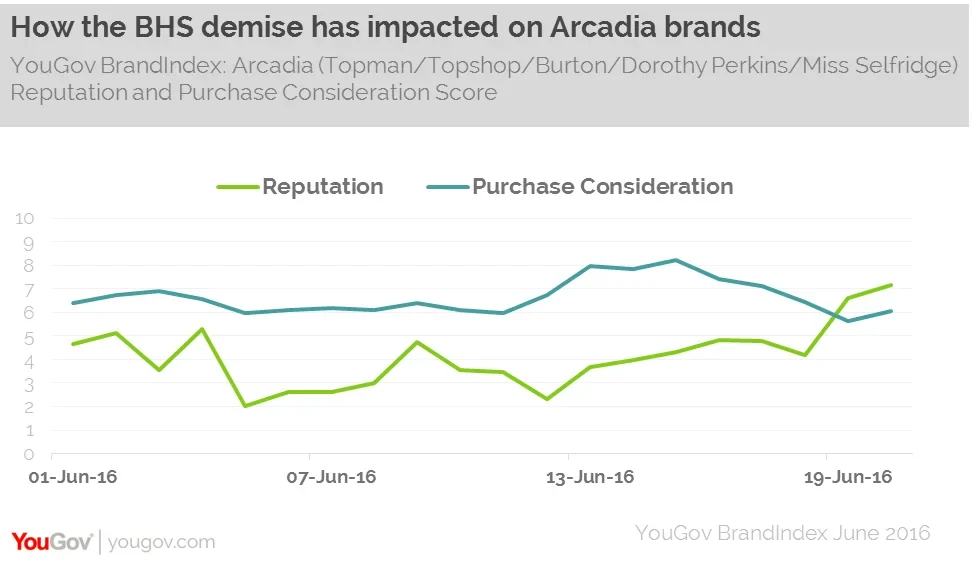Last week I discussed the fall-out from Sports Direct boss Mike Ashley’s appearance in front of MPs.
This week I will look at former BHS chief Sir Philip Green who on 15 June sat in the parliamentary hot seat, answering questions about the collapse of the high street retailer.
Around 11,000 BHS staff are set to lose their jobs and their pensions are all at risk.
The debate around where the blame lies for BHS’s demise has been front page news in recent weeks, with particular pressure on Green and Dominic Chappell, the man Sir Philip sold the troubled chain to.
YouGov BrandIndex data allows us to consider the other brands in Green’s Arcadia group – such as Topshop and Topman, Burton, Dorothy Perkins and Miss Selfridge – have seen their public perception affected by events at BHS.
Our data shows a tale of contradictions for Arcadia.
On one front, there is good news. Taking all the above brands together, the combined Reputation Score (which asks whether people would be proud to work for a particular brand) has actually risen since Sir Philip’s appearance.
This is even more pronounced among the 18-34s age group, in which the score has risen by 10 points.

However, there’s a different story when we look at Purchase Consideration (which looks at whether people would buy from a brand). On this score there is clear decline, among respondents in general (a decrease of three points) and the 18-34 age group in particular (a drop of six points).
The data suggests that the score is beginning to improve again, however, so the impact from the negative headlines may already be passing.
Green should be reassured that Topshop and Topman in particular are such a solid brands, and the problems encountered at BHS aren’t bleeding into other Arcadia companies that customers feel loyalty to.
The younger target demographic also helps to shield Green’s other companies from any lingering consumer discontent.
Image PA










